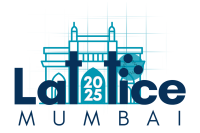Speaker
Description
Recent global events have shown how easily access to critical technologies can be disrupted - whether due to trade restrictions, export controls, or the conflicting obligations of multinational corporations caught between multiple jurisdictions. These developments highlight a profound truth: a nation’s digital future cannot be secure, inclusive, or self-reliant if its foundational technology infrastructure is vulnerable to forces beyond its borders.
This challenge becomes even more urgent in the era of Artificial Intelligence. AI is not only shaping industries, economies, and societies, it is also redefining global power balances. From large language models and scientific simulations to defense and healthcare applications, AI relies on massive computing power. If this capacity resides solely in infrastructure controlled elsewhere, the risks to innovation, data sovereignty, and long-term competitiveness are immense. Building sovereign AI infrastructure is therefore central to ensuring nations maintain control over their digital destiny.
Shakti Cloud is one of India’s advanced sovereign platforms for high-performance computing and artificial intelligence. It is powered by NVIDIA H100 and L40S GPUs (B200 GPUs coming soon) with high-speed interconnects and offers up to 16 exaflops of capacity. It can handle demanding workloads like training state-of-the-art AI models to driving complex scientific research. An important feature of Shakti Cloud is that the entire system is built and operated within India, ensuring that the country’s researchers and enterprises can access world-class infrastructure while retaining control within national boundaries.
For researchers and scientists, access to large-scale computing makes it possible to run experiments, train models, and perform simulations at a speed and scale that was previously difficult within India. Shakti Cloud is designed to support these needs with infrastructure that reduces dependence on external providers. Through Shakti AI Lab, universities and institutes can work with ready-to-use environments that come with widely used tools such as TensorFlow, PyTorch, and Jupyter, lowering the barriers for students and faculty to begin experimenting with AI. For more advanced projects, Shakti Clusters use orchestration systems like Kubernetes and SLURM to help teams manage and scale complex training jobs. To support deployment, Shakti AI Endpoints enable models to run with low latency across different fields, including healthcare, scientific research, media, and industrial applications.
Shakti Cloud also provides serverless GPUs and bare metal as a service, creating a flexible and scalable AI infrastructure. This setup supports diverse applications - from education and research to enterprise and national-level AI projects - while keeping computational resources controlled within India. The platform also considers accessibility and resource allocation, offering flexible usage options that allow startups, academic institutions, and research labs to access high-performance computing without long-term commitments. Overall, Shakti Cloud represents an effort to develop sovereign AI infrastructure within India. By maintaining control over computational resources domestically, it aims to support researchers, students, and the broader scientific community in pursuing AI and HPC work with greater independence and continuity.
| Parallel Session (for talks only) | Software development and machines |
|---|

